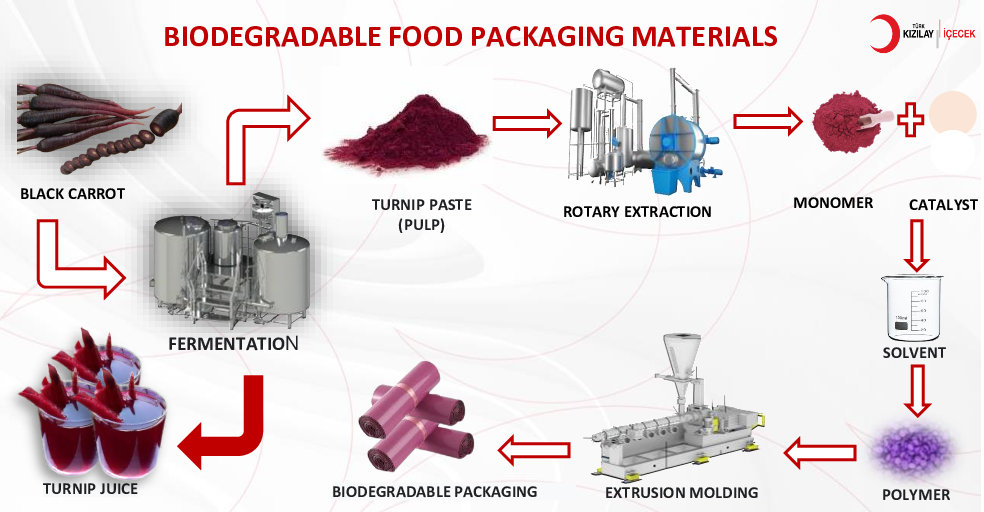JOURNAL 3045
Records of Agricultural and Food Chemistry
Year: 2024 Issue: 3 Special Issue: Abstracts 3rd. TCS, International Food Chemistry Congress February 29-March 03,2024 Antalya Türkiye
p.20 - 20
Viewed 1642 times.
GRAPHICAL ABSTRACT

ABSTRACT
With the growth of the food industry and the increasing world population, the management of waste generated during the processing of fruits and vegetables has become increasingly important. These wastes contain not only nutritional values but also bioactive components. In particular, the turnip and the pulp which is produced during the production of turnip juice which is a traditional drink, is produced by fermenting turnips and radishes and all these are generally used in the fertilizer or feed industry. However, utilizing this waste material with innovative applications such as the synthesis of bioactive components and biodegradable packaging can provide significant advantages in terms of sustainability. As the use of plastic packaging causes environmental problems worldwide, the development of biodegradable packaging offers a solution-oriented approach. These packaging are often produced with materials derived from edible or renewable resources and can be degraded by microorganisms in industrial composting facilities or in natural environments. These features allow biodegradable packaging to be considered an environmentally friendly alternative. The use of such packaging can reduce fossil fuel use, lower the carbon footprint and make waste management more sustainable.Evaluation and recycling of waste is an important step to increase sustainability and efficiency in the food industry. The evaluation of waste products such as turnips together with bioactive components can contribute to the adoption of a broad approach in waste management strategies. This allows economic benefits to be achieved while supporting environmental sustainability, as well as encouraging more efficient and conscious use of natural resources. Therefore, utilizing waste products can contribute to the development of more sustainable and environmentally friendly practices for the future food industry. This research records the recycling strategies of biodegradable packaging products by examining them with specific applications.
KEYWORDS- Polymer
- biodegradable
- food waste